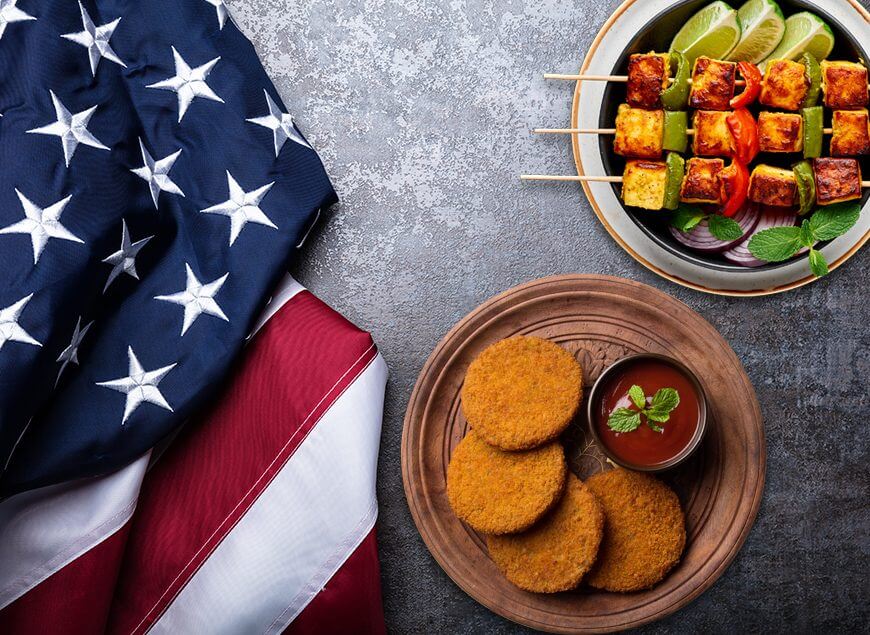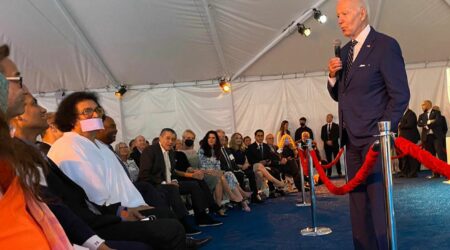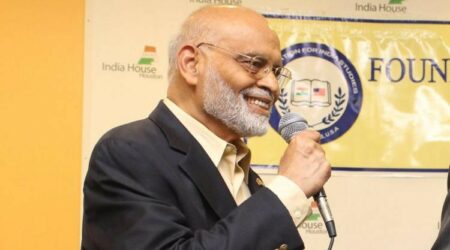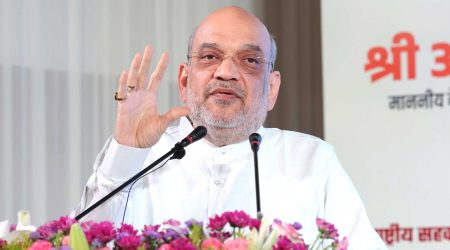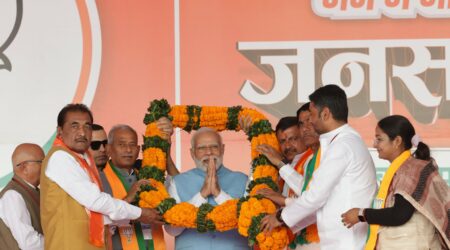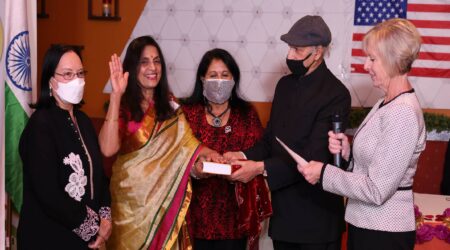By Neera Kuckreja Sohoni
England’s abolition of slavery in 1833 led to a huge demand for cheap labor causing the first significant wave of Indians to immigrate to distant lands. The motivation then as now was to earn a better livelihood and to escape from dire poverty. Those leaving India’s shores purely to seek adventure or freedom were rare.
Exclusionary measures around the 1920s reduced and eventually banned immigrants coming to the US from India, which ban lasted until an act passed in 1946 established a measly yearly quota of 100 Indian immigrants. The 1965 Immigration and Nationality Act removed national-origin quotas altogether, enabling Indians to arrive here in large numbers. This new wave consisted mainly of highly skilled and educated workers aided by temporary worker permits and educational exchange programs. Of the 18-20 million currently estimated to form the diaspora, between 4-5 million are in the US.
Almost always, their motivation to emigrate was material gain, which in turn, would assure the émigrés economic prosperity abroad and higher status at home.
On July Fourth, therefore, assessing how the Indian Diaspora thinks of freedom is a challenging task. Except for those desirous of escaping the stranglehold of caste and class on one’s progress, overwhelmingly, Indians come here to this land of liberty for its wealth and equally for it being the land of opportunity.
A quiet benefit for immigrants coming here is the blessing of anonymity in that the immigrant Indian can enjoy the personal freedom to act as he or she wishes without having to follow the stricter social values and norms of conduct associated with the traditional conservative Indian society they grew up in at home.
Even so, after getting here, it is nevertheless hard for Indians to give up on many of the ingrained value systems. Emigrants from India or elsewhere invariably bring along the baggage of ingrained values and prejudices that represent the positive and negative aspects of their upbringing and cultural legacy.
Even in the most technologically advanced and progressive Silicon Valley, caste distinctions continue. Caste discrimination has been a source of anguish to the Indian techies employed here, against which official complaints have been lodged and redress sought from the concerned civil rights entities.
When the caste system’s legacy is allowed to continue, that automatically undermines the two central pillars of American democracy viz., equality and non-discrimination, which are already breached or not respected enough by Indian expatriates in the US.
The third pillar of democracy is its core tenet that power rests with the people. Americans derive their rights directly from God and not from a divinely anointed king or president. For citizens to follow that precept, they need to have faith in themselves and the confidence and courage to stand up to the ruler. But India’s past continues to impact our ability to do so whether as citizens there or as immigrants here.
Incessant foreign occupation of India across the ages has made us ambivalent to our own autonomy. We find it therefore difficult and unreal to accept that power is vested in us as people, and not in our rulers. We bring the same self-seeking servility to our political leaders and bureaucracies whether in India or abroad.
Between censorship and free speech, the former being an existential threat to democracy, it is unsurprising that the Indians settled here are reluctant to support the latter. As the CEO of Twitter and much of the digital platforms’ workforce who are Indian have shown, Indians are biased in favor of censorship. Why? Because censoring the opposition’s views, helps the cause of the party and the president in power.
Other negative traits that have accompanied us here from our shores are those that directly or indirectly undercut and erode democracy. Indian administrative state – right from Mughal through Colonial British period – relied on appeasement and on the survival of the most subservient. Hence follows our reluctance to stand up to a ruling power.
Consequent to the instinct to survive and the hunger to be recognized by appeasing those in authority is the compulsive desire among us to maneuver or game the system.
Over centuries we have learned that the Indian administrative state is such that to get it to work in your favor or at all, you need to resort to extra-legal means. The concept of bribery explained by literary giant Munshi Prem Chand in his timeless class “Namak Ka Daroga” and to speed up the processing of any and every matter is not something we are able to easily shed, and this habit increasingly is behind several convictions and suspensions from the office of ethnic Indians.
On the positive side, with our peaceful and syncretic Indian cultural legacy accompanying us to this land, we bring the ingrained wisdom and pragmatic sense to prefer conciliation over confrontation, and reconciliation over retribution. When we feel wronged, we do not readily take to violence and burning and looting of cities, or embrace anarchical.
What we see instead is a commitment to approach a problem peacefully. That is one trait we directly inherited from Gandhi who first demonstrated to us and to the world how principled peaceful resistance can shake an empire, but importantly, how in victory, one can still show the grace to forgive others for their trespasses and join hands with them to form a commonwealth of once warring nations.
On this July 4th, we can try to celebrate this nation’s independence with the hindsight of our past and reckoning the strengths and weaknesses our legacy has endowed us with, and the foresight of what our future here can and should be, and how we can align ourselves to what the framers and founders of this democracy expected of each one of us.
“The Fourth of July is a national holiday to celebrate this country’s freedom from Britain,” said Rory Kaufman, Chair of the Black American Political Association of California, Sacramento Chapter. “But, Black people were never free or equal. We were still Three-Fifths in the Constitution of the United States. We were not considered whole.”
While blacks are not entirely freed from white prejudice, and immigrants mull over the value of a free America to them, it is important to be grateful that our loss and violation of human rights has been on a much less significant scale than that of the Blacks.
Along with being fully aware of and grateful for the less acute discrimination that we have endured after moving here, we owe a degree of honesty to our black sisters’ and brothers’ to acknowledge what Christi Ketchum has noted, “We can celebrate the Fourth of July. But, let’s just be honest about what it is and what it is not.”
This year let us pledge to make America and American freedom available to all of us, not just to the better off and to the privileged class of Americans.

Neera Kuckreja Sohoni
Disclaimer: The views expressed are not necessarily those of The South Asian Times


